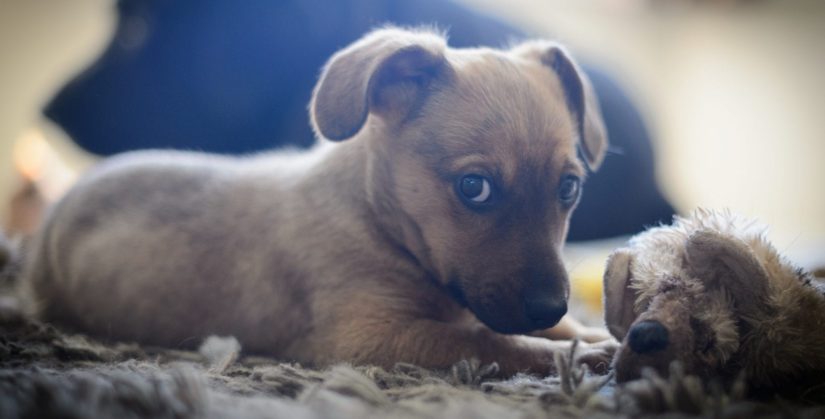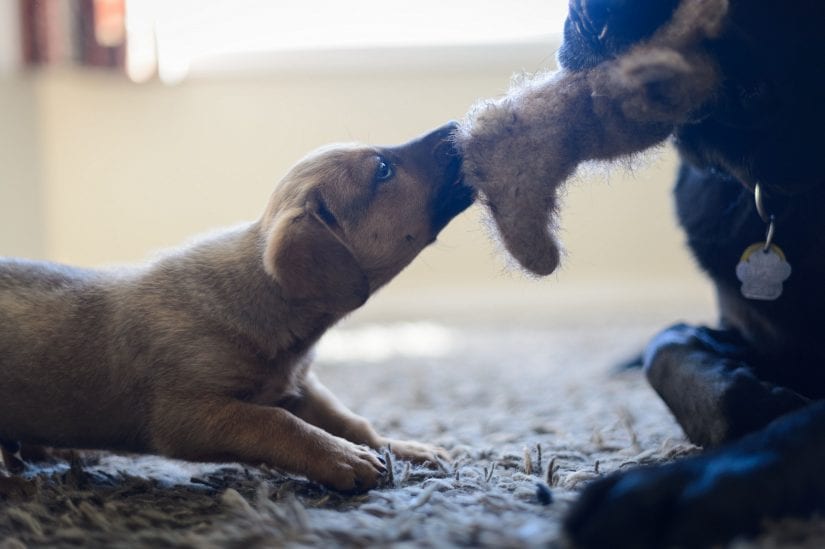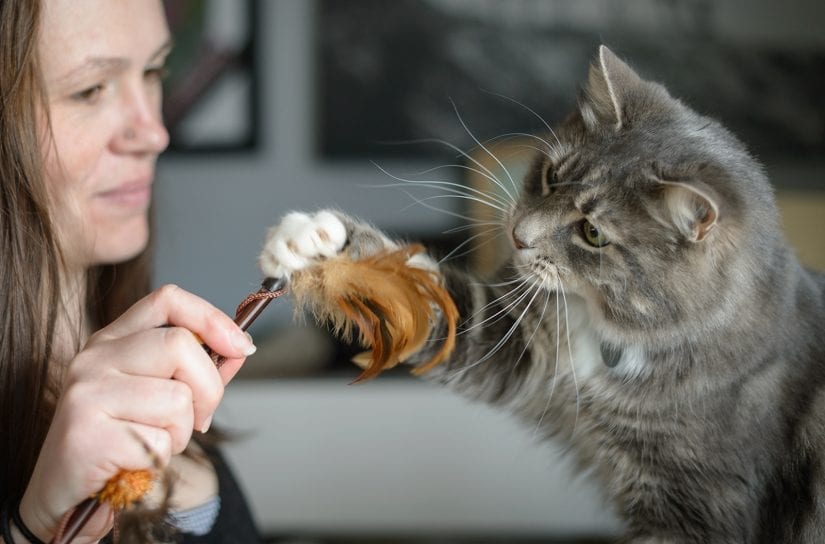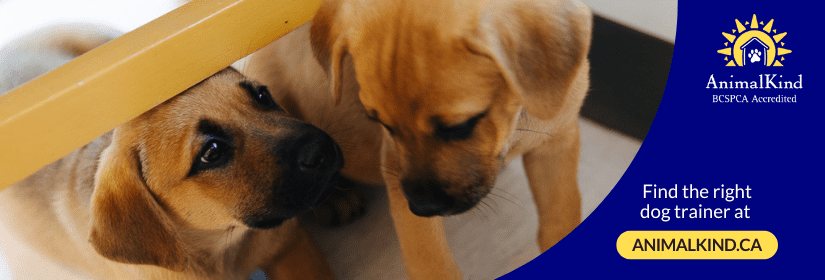Pet care & behaviour
Socializing your puppy is one of the most important things you can do to help him have a happy and healthy life.
What is puppy socialization?
There is a window or “sensitive period” in which to socialize puppies. This period, often called socialization period, is the first three months of their life.
During this time, puppies accept and like things they meet and have a good experience with. It’s not that they don’t experience fear, they do, but we need to prevent them from being scared during this sensitive period. We need to teach puppies about strangers and new things, and help them if they’re nervous.

Sometimes people keep puppies at home until they are fully vaccinated at around four months of age.
While it is important not to let your puppy interact with sick dogs, and to avoid places where lots of dogs go (like the dog park) until they are fully vaccinated, it is not necessary to isolate your young puppy!
You can still take him outside and socialize him with healthy, friendly dogs. Make sure he is up-to-date on vaccinations to minimize the risk as much as possible.
Make sure your pup has lots of good experiences so they learn that people, animals and other things are good.
Socializing your pup
1.) Introduce your puppy to:
-
- Different people
- Social dogs
- Other social animals
- Different sounds
- Different environments
- Trips and different locations
2.) Handling your pup
Handle your pup so he gets use to having his toes, ears and other body parts touched. Dogs aren’t born used to being handled and we need to teach them it’s OK. Give treats after handling.
Learn more about teaching your puppy to be good with handling, watch our video:
3.) Visit your vet’s office just for puppy treats
Make special trips to your vet. Ask your vet to give your puppy a treat when you visit. Try to visit the exam rooms and back of the hospital so your pup is familiar with the hospital and staff. Give treats in each room!
4.) Start puppy socializing classes
Find a puppy socializing class and start classes right away. If your puppy is not well, speak with your vet before going to class.
5.) Give puppy play time by himself
Give your pup some toys and let him play by himself. This may help with over attachment to you.
6.) Puppies need crate or confinement training
Teach your pup he has a safe place to go sleep or just to get away from things he doesn’t like. Give him choice. For example, if he doesn’t want to be in the room when the kids are playing or visitors are over, let him go to his crate. Forcing him to stay may make him anxious or afraid of the people you’re trying to socialize him with.
Your goal is for your puppy to have many different experiences during his first three months. Make sure he has good experiences and use rewards to help him build strong associations.
7.) What if I don’t socialize my pup?
Puppies who are not socialized during their “sensitive period” may be fearful and aggressive. If they have no experience with different things or people, they can end up afraid of them.
8.) Socializing older puppies
Unfortunately, the window for socializing closes at about 12 weeks. You can still help an older dog get used to new things, but they may never be completely comfortable.
Find a dog trainer who offers puppy socialization classes near you!
Search the list of AnimalKind accredited trainers the BC SPCA recommends:
Puppies need patience, time and supervision. Start with planning what you will need and what your pup will need when they come home.
Supplies
- Food
- Harness, collar and ID tag, and leash
- Toys – chew toys, fun toys and feeding toys
- Bed
- Crate
Puppy proof your home so your puppy doesn’t get into things it shouldn’t.
Plan where you want your pup to go to the bathroom and give them treats when they go in that spot.
Crate training is an easy way to help housetrain your pup and prevent him from getting into things.
When you bring pup home, start handling and giving him treats after so he learns handling is a good thing.
How do I socialize my puppy?
Don’t forget, if your puppy is under 12 weeks he’s at an important time in his life. Socialize him now and give him good experiences so he learns the world is a fun and safe place.
Check out BC SPCA AnimalKind resources for puppy guardians
- Learn about socialization and training appropriate chewing.
- Get the answers to the when, how and why of puppy training.
- Follow the step-by-step guide for new dog guardians.
- Know how to find the best dog trainer.
Puppies are a lot of fun and, like toddlers, they need to learn where to go potty. Remember it’s up to us to teach them and reward them when they get it right.
When house training your puppy, consider training him to like a crate. Crates can help with house training and chew training.
Training tip
Never punish your puppy for not going where you want or for not doing what you want him to do. We have to teach animals what we want them to do. If he doesn’t stay by your side he may not know that’s what you want. Reward him when he’s beside you. Use lots of treats and when he’s older you can use treats and life rewards.



